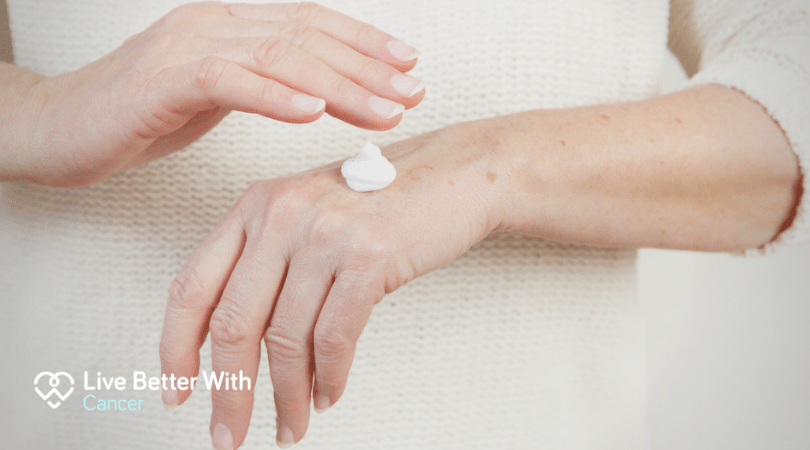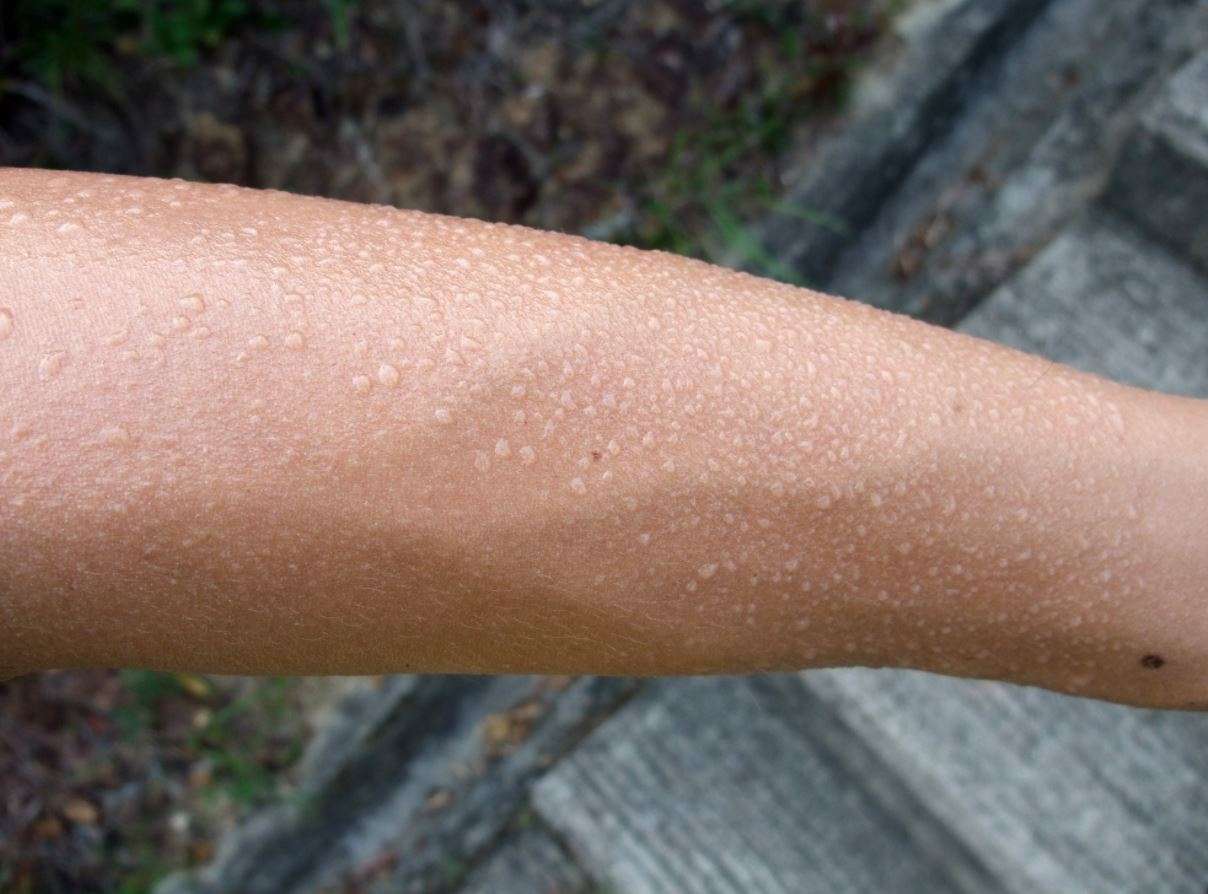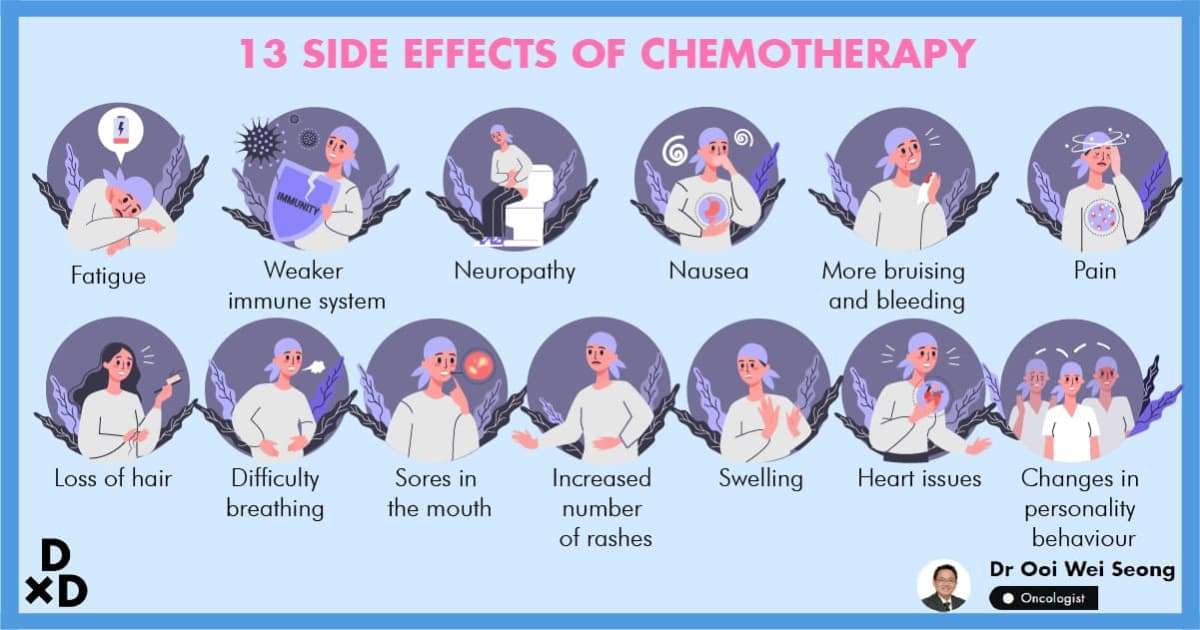What Are The 3 Types Of Skin Cancer
Skin cancer the abnormal growth of skin cells most often develops on skin exposed to the sun. But this common form of cancer can also occur on areas of your skin not ordinarily exposed to sunlight. There are three major types of skin cancer basal cell carcinoma, squamous cell carcinoma and melanoma.
Read Also: Invasive Ductal Carcinoma Survival Rate
Cancer Fatigue Is Different From Fatigue That Healthy People Feel
When a healthy person is tired from day-to-day activities, their fatigue can be relieved with sleep and rest. Cancer fatigue is different. People with cancer get tired after less activity than people who do not have cancer. Also, cancer fatigue is not completely relieved by sleep and rest, interferes with daily activities, and may last for a long time. Fatigue usually decreases after cancer treatment ends, but some people may still feel fatigue for months or years.
Also Check: Does Alcohol Increase The Risk Of Breast Cancer
What Does Cancer Tiredness Feel Like
The fatigue felt by people with cancer is different from the fatigue of daily life and different from the tired feeling people might remember having before they had cancer. People with cancer might describe it as feeling very weak, listless, drained, or washed out that may decrease for a while but then comes back.
Recommended Reading: How Long Does It Take For Melanoma To Spread To Organs
Risk Of Further Melanomas
Most people treated for early melanoma do not have further trouble with the disease. However, when there is a chance that the melanoma may have spread to other parts of your body, you will need regular check-ups.
Your doctor will decide how often you will need check-ups everyone is different. They will become less frequent if you have no further problems.
After treatment for melanoma it is important to limit exposure to the sun’s UV radiation. A combination of sun protection measures should be used during sun protection times .
As biological family members usually share similar traits, your family members may also have an increased risk of developing melanoma and other skin cancers. They can reduce their risk by spending less time in the sun and using a combination of sun protection measures during sun protection times.
It is important to monitor your skin regularly and if you notice any changes in your skin, or enlarged lymph glands near to where you had the cancer, see your specialist as soon as possible.
Basal Cell Carcinoma Staging

Staging is the process of determining whether cancer has spread and, if so, how far. The stage of the disease may affect the treatment plan.
The stage is based on the size of the tumor, how deeply into the skin it has grown, and whether cancer has spread beyond the tumor to the lymph nodes. Your doctor will look at the results of the biopsy to determine the stage. In rare cases, your doctor may recommend imaging such as CT or PET-CT scan to see if the cancer has spread beyond the skin
Stages are numbered in Roman numerals between 0 and IV.
Most non-melanoma skin cancers are Stage 0 or Stage 1. Stage 3 and 4 are relatively rare. Based on the type of cancer, the stage of cancer, your overall health, and other factors, your doctor works with you to develop a treatment plan.
High risk features for primary tumor staging
- Depth/invasion: > 2 mm thickness , Clark level IV, Perineural invasion
- Anatomic: Primary site ear
- Location: Primary site hair-bearing lip
- Differentiation: Poorly differentiated or undifferentiated
Recommended Reading: What Type Of Skin Cancer Spreads The Fastest
Read Also: Melanoma Stage 3 Survival Rate
Fatigue Can Decrease Your Quality Of Life
Cancer fatigue can affect all areas of your life by making you too tired to take part in daily activities, relationships, social events, and community activities. You might miss work or school, spend less time with family and friends, or spend more time sleeping. In some cases, physical fatigue leads to mental fatigue and mood changes. This can make it hard for you to pay attention, remember things, and think clearly. If you suffer from cancer fatigue, you may need to take leave from a job or stop working completely. Job loss can lead to money problems and the loss of health insurance. All these things can lessen your quality of life and self-esteem.
Medicines Other Than Chemotherapy May Add To Fatigue
Patients may take medicines for pain or conditions other than the cancer that cause drowsiness. Opioids, antidepressants, and antihistamines have this side effect. If these medicines are taken at the same time, fatigue may be worse.
Taking opioids over time may lower the amount of sex hormones made in the testicles and ovaries. This can lead to fatigue as well as sexual problems and depression.
Recommended Reading: How Do You Check For Male Breast Cancer
You May Like: How Long Does It Take Melanoma To Metastasize
How Cancer Treatment Causes Fatigue
Radiation therapy, chemotherapy, surgery, hormone therapy, immunotherapythese treatments and their common side effects challenge the body, and the body needs energy to recover.
When you start a new treatment, the body produces cytokines to help boost the immune response. When cells die, the body works to clean up those dying cells, causing inflammation. Its a desirable response in this case, but inflammationboth acute and chronicalso causes fatigue.
You can compare this fatigue to how you feel when your body fights the flu or another infection, like COVID-19. While your bodys working hard to fight the infection, you feel tired.
How and when you experience fatigue from cancer treatment may vary according to the treatment youre receiving and its side effects.
What Are The 3 Types Of Fatigue
There are three types of fatigue: transient, cumulative, and circadian:
- Transient fatigue is acute fatigue brought on by extreme sleep restriction or extended hours awake within 1 or 2 days.
- Cumulative fatigue is fatigue brought on by repeated mild sleep restriction or extended hours awake across a series of days.
Recommended Reading: Stage 3 Melanoma Life Expectancy
See A Suspicious Spot See A Dermatologist
If you find a spot on your skin that could be skin cancer, its time to see a dermatologist. Found early, skin cancer is highly treatable. Often a dermatologist can treat an early skin cancer by removing the cancer and a bit of normal-looking skin.
Given time to grow, treatment for skin cancer becomes more difficult.
Signs That Your Cancer Has Spread
Melanoma can spread to other parts of your body, including your lymph nodes, brain, liver, and lungs. Your symptoms can give clues to where the cancer has spread.
Cancer that has spread beyond the original part of your body where it began is called metastatic cancer. General symptoms of metastatic skin cancer can include:
Also Check: Well Differentiated Squamous Cell Carcinoma Stages
How Is Fatigue Treated
Some treatments can help with fatigue, depending on whats causing it.
- Blood transfusion. If youre fatigued because you have a low red blood cell count , having an infusion of blood can make you feel better.
- Nutritional advice. If youre not eating well, a dietitian may be able to give you some advice to help you get the nutrients and calories you need from your diet to keep your energy and strength up. They can also give you any supplements you might need. For example, iron or vitamin B12.
- Hormone or steroid treatment. Some types of surgery and certain immunotherapy and hormone therapy drugs can affect your hormone levels, which can leave you feeling tired. You may need hormone supplements or steroids to improve your fatigue.
- Counselling. Feeling anxious or depressed can sap your energy. Talking to a counsellor can help you to feel better. Find out more about counselling and how to get free counselling.
- Complementary therapies. Some complementary therapies may help relieve fatigue, depending on whats causing it. For example, gentle massage, yoga or mindfulness. Check with your medical team first, to make sure the therapy youre thinking about is safe for you. Read more about complementary therapies.
Exercise and fatigue
How Long Does Fatigue Or Weakness Last

Fatigue that is due to cancer and its treatment can last for weeks, months, or years. It often continues after treatment ends.
- For people who have surgery for cancer with no other treatment, fatigue often decreases or goes away over time as they recover from surgery.
- For people getting chemotherapy, targeted therapy, or immunotherapy in cycles, fatigue often gets worse at first and may get better until the next treatment, when the pattern starts again.
- For those getting radiation therapy, fatigue usually gets worse as the treatment goes on and often lessens within a few months after treatment is complete.
Fatigue can:
- Differ from one day to the next in how bad it is and how much it bothers you
- Be overwhelming and make it hard for you to feel well
- Make it hard for you to be with your friends and family
- Make it hard for you to do things you normally do, including going to work
- Make it harder for you to follow your cancer treatment plan.
Read Also: Skin Cancer Mayo
Questions To Ask The Doctor
- Do you know the stage of the cancer?
- If not, how and when will you find out the stage of the cancer?
- Would you explain to me what the stage means in my case?
- What will happen next?
There are many ways to treat skin cancer. The main types of treatment are:
- Surgery
- Immunotherapy
- Chemotherapy
Most basal cell and squamous cell cancers can be cured with surgery or other types of treatments that affect only the spot on the skin.
The treatment plan thats best for you will depend on:
- The stage and grade of the cancer
- The chance that a type of treatment will cure the cancer or help in some way
- Your age and overall health
- Your feelings about the treatment and the side effects that come with it
Treat Yourself To A Massage
A gentle massage can help with both the pain and stress from cancer. If you have lymphedema enlarged lymph nodes after surgery a special massage technique called lymph node drainage can help bring down swelling in the affected arm or leg.
Go to a licensed massage therapist who has training and experience caring for people with skin cancer. Ask your oncologist for a referral. Let the massage therapist know where on your body your cancer was, so they can avoid it during the massage.
Nausea and vomiting are common side effects of both radiation and chemotherapy. If you usually eat three large meals a day, switch to having several small ones. Smaller portions are easier for a sensitive stomach to handle.
Choose bland foods like crackers and dry toast. Drink extra water and other fluids to prevent dehydration.
Also Check: How Do You Feel When You Have Skin Cancer
What Will Happen After Treatment
Youll be glad when treatment is over. Your doctor will want you to check your skin at least once a month. It will be very important to protect yourself from getting too much sun.
For years after treatment ends, you will see your skin cancer doctor. At first, your visits may be every few months. Then, the longer youre cancer-free, the less often the visits are needed. Be sure to go to all of these follow-up visits. Your doctor will ask about symptoms and check you for signs of the cancer coming back or a new skin cancer. Other exams and tests may also be done.
Having cancer and dealing with treatment can be hard, but it can also be a time to look at your life in new ways. You might be thinking about how to improve your health. Call us at 1-800-227-2345 or talk to your cancer care team to find out what you can do to feel better.
You cant change the fact that you have cancer. What you can change is how you live the rest of your life making healthy choices and feeling as good as you can.
Warning Disclaimer Use For Publication
WARNING: Please DO NOT STOP MEDICATIONS without first consulting a physician since doing so could be hazardous to your health.
DISCLAIMER: All material available on eHealthMe.com is for informational purposes only, and is not a substitute for medical advice, diagnosis, or treatment provided by a qualified healthcare provider. All information is observation-only. Our phase IV clinical studies alone cannot establish cause-effect relationship. Different individuals may respond to medication in different ways. Every effort has been made to ensure that all information is accurate, up-to-date, and complete, but no guarantee is made to that effect. The use of the eHealthMe site and its content is at your own risk.
If you use this eHealthMe study on publication, please acknowledge it with a citation: study title, URL, accessed date.
Read Also: Immunotherapy For Malignant Melanoma
Side Effects And How To Manage Them
Your radiation doctors plan treatments very carefully to lessen side effects. While some patients have little or no side effects from radiation therapy, others feel some discomfort. Side effects are usually short-term and can be treated. No matter what type of therapy you receive, our doctors and nurses are skilled in helping to manage side effects.
Side effects most often start by the second or third week of treatment. They can last up to several weeks after your final radiation treatment. Many people who get radiation have some fatigue and skin reactions. Based on the area of your body being treated, you may also have some:
- Hair loss
Most side effects go away within 12 months after you have finished radiation therapy.
Ways To Manage Fatigue
Tell your health care team if you feel extremely tired and are not able to do your normal activities or are very tired even after resting or sleeping. Keeping track of your levels of energy throughout the day will help your doctor to assess your fatigue. Write down how fatigue affects your daily activities and what makes the fatigue better or worse.
You may be advised to take these and other steps to feel better:
NCI’s Fatigue PDQ® summary has more information on how fatigue is assessed and treated. View the patient or health professional version.
You May Like: 3b Melanoma
What Is Difference Between Adenoma And Carcinoma
Adenocarcinoma may occur almost anywhere in the body, starting in glands that line the insides of the organs. Adenocarcinoma forms in glandular epithelial cells, which secrete mucus, digestive juices or other fluids. It is a subtype of carcinoma, the most common form of cancer, and typically forms solid tumors.
Can You Prevent Melanoma

The best way to prevent all kinds of skin cancer, including melanoma, is to protect yourself whenever you are out in the sun.
- Try to stay out of the sun during the middle of the day .
- Wear sun-protective clothes when you are outside, such as a hat that shades your face, a long-sleeved shirt, and long pants.
- Use sunscreen every day. Your sunscreen should have an SPF of least 30. Look for a sunscreen that protects against both types of UV radiation in the sun’s raysâUVA and UVB. When you are outdoors for long periods of time, reapply sunscreen every 2 hours.
- Take extra care to protect your skin when you’re near water, at higher elevations, or in tropical climates.
- Avoid sunbathing and tanning salons.
Check your skin every month for odd marks, moles, or sores that will not heal. Check all of your skin, but pay extra attention to areas that get a lot of sun, such as your hands, arms, and back. Ask your doctor to check your skin during regular physical examinations or at least once a year.
Also Check: Malignant Breast Cancer Survival Rate
You Can Find Skin Cancer On Your Body
The best way to find skin cancer is to examine yourself. When checking, you want to look at the spots on your skin. And you want to check everywhere from your scalp to the spaces between your toes and the bottoms of your feet.
If possible, having a partner can be helpful. Your partner can examine hard-to-see areas like your scalp and back.
Getting in the habit of checking your skin will help you notice changes. Checking monthly can be beneficial. If you have had skin cancer, your dermatologist can tell you how often you should check your skin.
People of all ages get skin cancer
Checking your skin can help you find skin cancer early when its highly treatable.
Basal Cell Carcinoma Warning Signs
Basal cell carcinoma typically develops on parts of your body exposed to sunlight, but it does occasionally occur in other places. often include:
- an open sore that doesnt heal or heals and returns it may ooze or crust over
- a pink growth with raised edges and a depressed center, sometimes with abnormal blood vessels that resemble the spokes of a wheel
- a small pink or red bump thats shiny, pearly, or translucent it may have areas that are black, blue, or brown
- a raised red patch that itches
- a flat and firm area that resemble a pale or yellow scar
Read Also: What Does Stage 3 Melanoma Look Like
Can A Person With Basal Cell Carcinoma Have Surgery
Yes, Mohs is a widely used method of removing the most common types of nonmelanoma skin cancers, including basal cell carcinoma and squamous cell . Cancer recurs because small areas of cancer cells may remain undetected in. For most people with skin cancer, surgery removes only a small part of the skin.
Recommended Reading: What Is The Survival Rate For Invasive Lobular Carcinoma